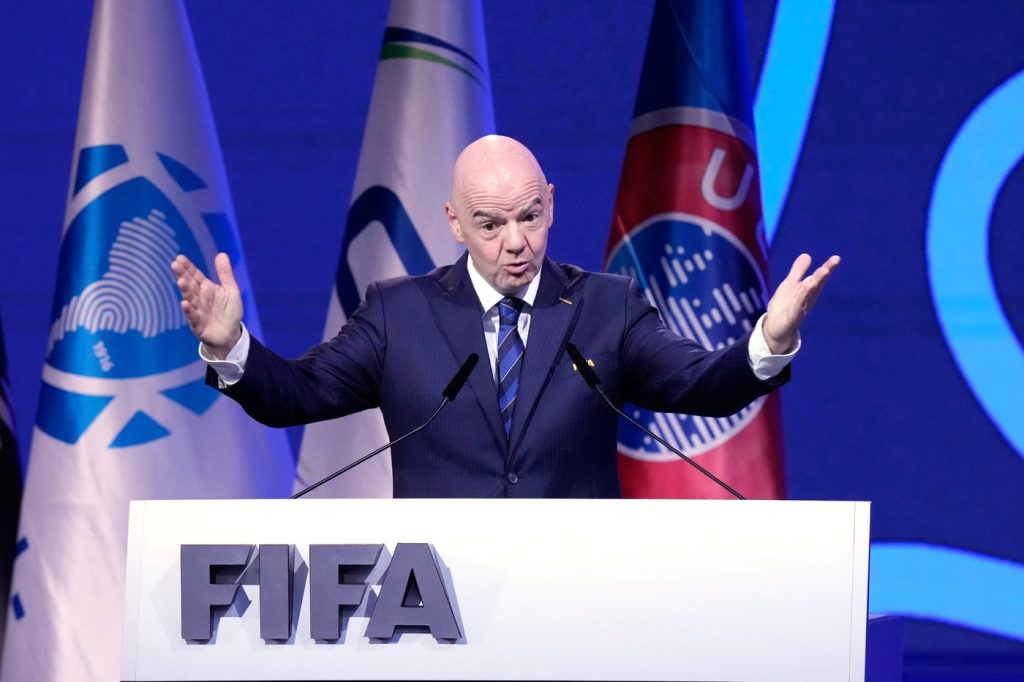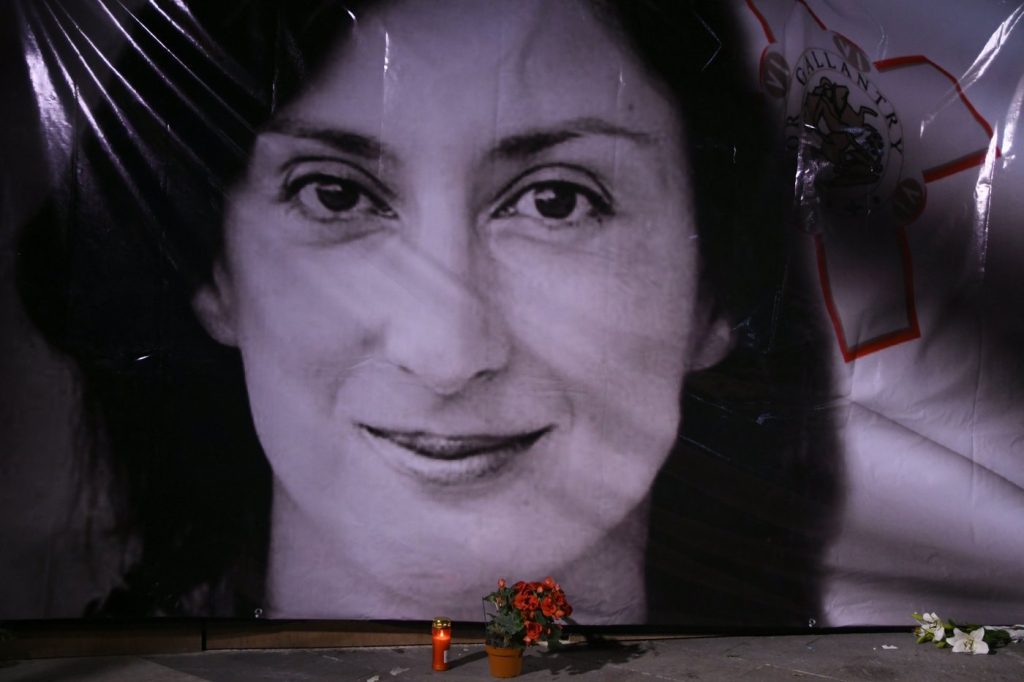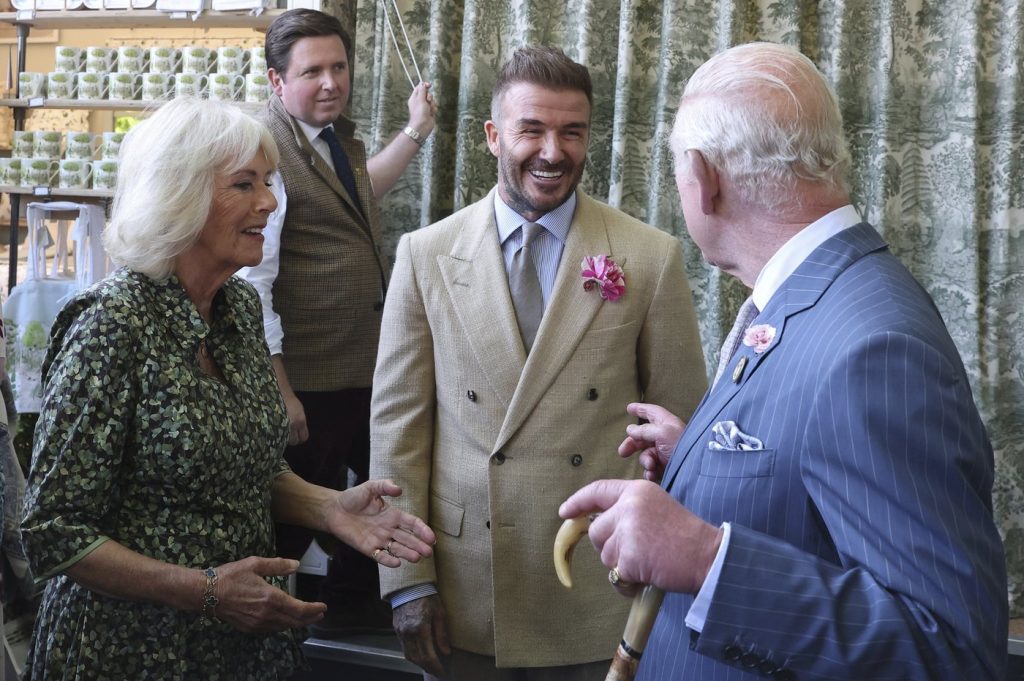GENEVA (AP) – U.S. President Donald Trump frequently expresses enthusiasm for the upcoming 2026 World Cup and the 2028 Los Angeles Olympics, viewing them as pivotal events in his anticipated second term. However, concerns are mounting regarding the visa policies that could affect foreign visitors planning to attend these major sporting events in the U.S.
Trump's recent travel ban has sparked uncertainty around the accessibility of the World Cup and the Summer Olympics, both of which rely on the host country being welcoming to international visitors. This travel ban targets citizens from 12 countries, which include Afghanistan, Myanmar, Chad, the Republic of Congo, Equatorial Guinea, Eritrea, Haiti, Iran, Libya, Somalia, Sudan, and Yemen. In addition, tighter restrictions will be imposed on visitors from another seven countries: Burundi, Cuba, Laos, Sierra Leone, Togo, Turkmenistan, and Venezuela. According to Trump, these countries were deemed to have inadequate screening and vetting processes or have a history of not accepting their own citizens back.
The implications of this travel ban on the World Cup and Olympics are significant. Iran, which has qualified for the World Cup co-hosted by the U.S., Canada, and Mexico, is among the countries affected. Other countries like Cuba, Haiti, and Sudan have teams in contention, while Sierra Leone, Burundi, Equatorial Guinea, and Libya have less likelihood of participation. Despite these restrictions, an exception will be made for athletes and official team members—including coaches and immediate family—traveling for the World Cup, Olympics, or any significant sporting events as determined by the Secretary of State. This exemption should extend to around 200 countries potentially sending athletes to the Summer Olympics, including those from the nations subject to the travel restrictions.
However, the travel ban does not specify any exceptions for fans from the targeted countries wishing to attend the World Cup or the Olympics. Prior to the ban, fans of the Iranian national soccer team faced challenges securing visas for a World Cup visit. It is noteworthy that national team supporters generally have different profiles compared to domestic club fans traveling internationally, often being from more affluent or diaspora communities that might have access to different passport options.
The economic impact of such restrictions is considerable. Fans attending the World Cup typically represent a high-spending demographic, while Olympic visitors generally have an even higher economic profile. Nonetheless, the overall tourism revenue during the Summer Games is often less than that of the World Cup, and the population of fans affected by the travel ban is comparatively small.
In response to these challenges, the U.S. government is collaborating with FIFA and Olympic officials to ensure smooth operations. FIFA President Gianni Infantino has cultivated a close relationship with Trump since 2018 and has emphasized the importance of the operational flow during tournaments that are critical to FIFA's projected $13 billion revenue from 2023 to 2026. Infantino's involvement in the planning process included participating in a White House task force meeting that addressed these very issues, highlighting the federal government's recognition of the unique requirements for the Olympic Games.
LA28 Chairman and President Casey Wasserman emphasized the federal government’s commitment to accommodating the Games, thanking them for their attention to the unique environment of the Olympics. Wasserman noted that preparations are in place to expedite visa processing in the lead-up to the Summer Games in 2028, though this effort primarily focuses on teams rather than individual fans. IOC member Nicole Hoevertsz also expressed confidence in the government's cooperation, reinforcing that similar efforts were historically successful in previous Olympic events.
Other host nations have previously implemented measures to facilitate entry for fans attending major events. For instance, during the 2018 World Cup, Russia allowed fans to enter the country using their match tickets as visas, a practice also adopted by Qatar in 2022. Moreover, both countries conducted thorough background checks to ensure the security of visitors. In contrast, during the 2012 London Olympics, the entry of Belarusian President Alexander Lukashenko was denied, illustrating the complexities of visa policies concerning government representatives.












